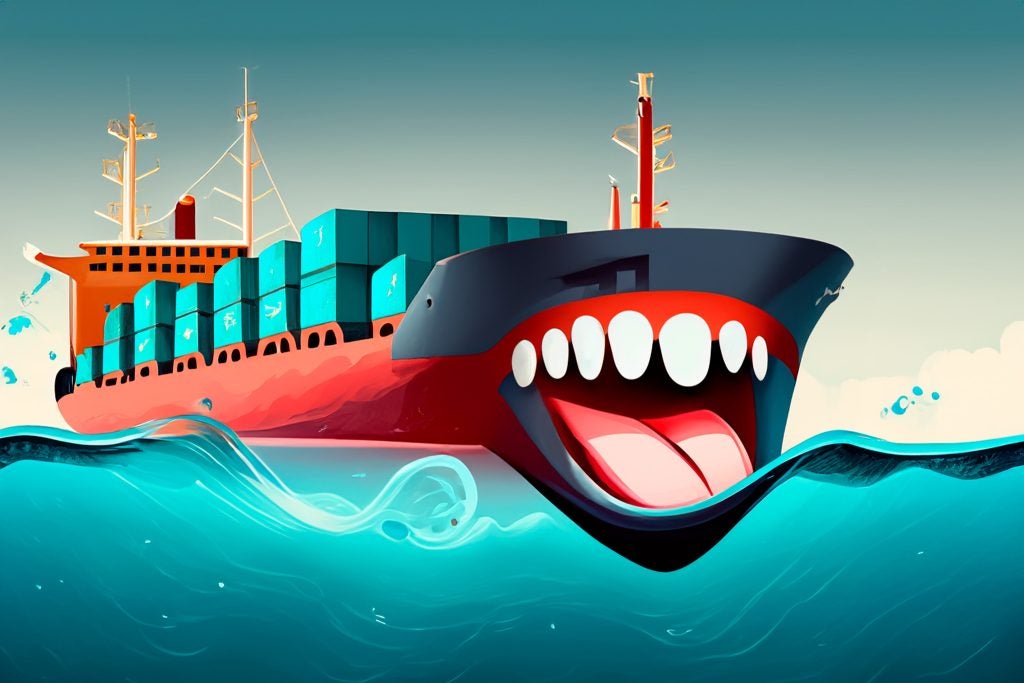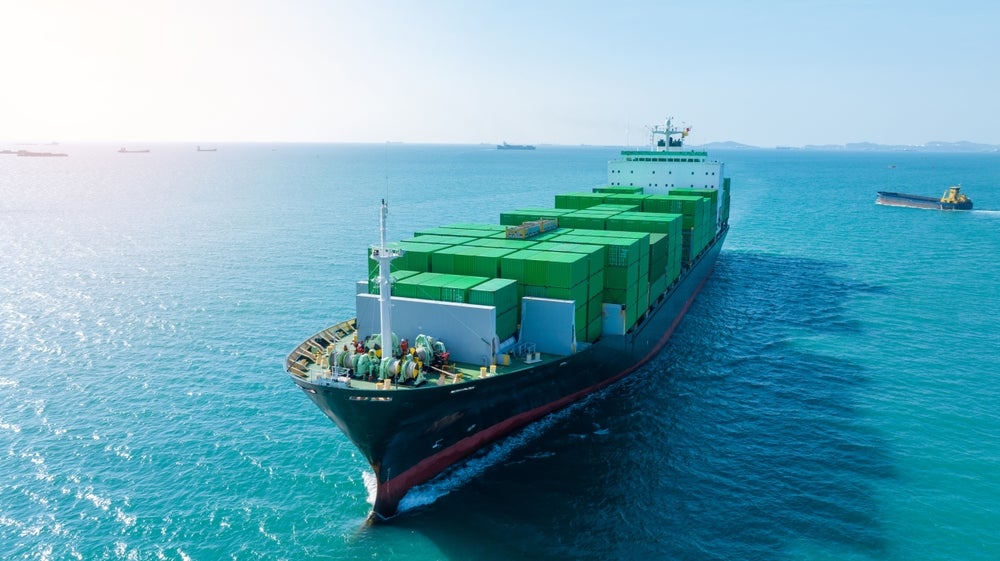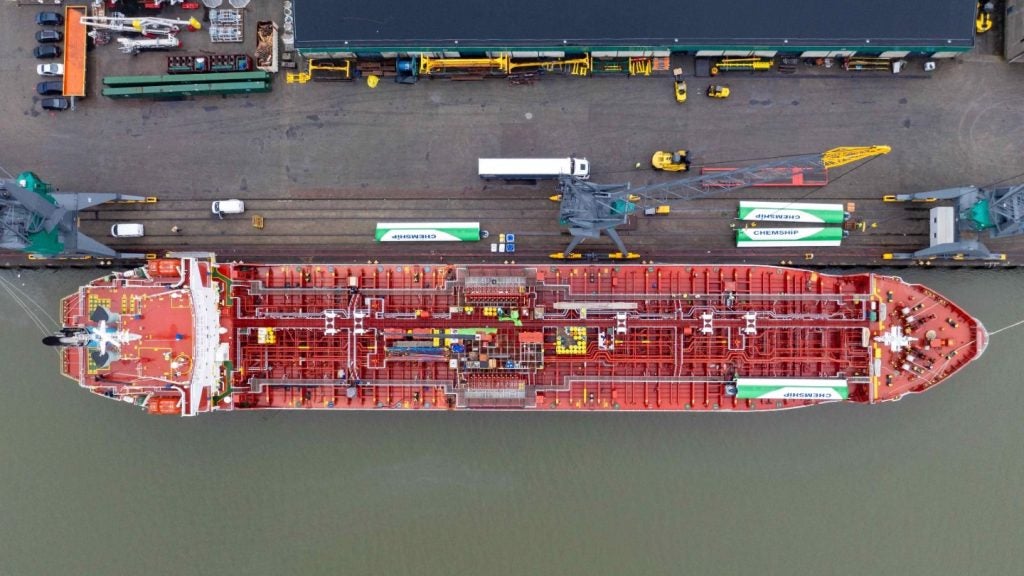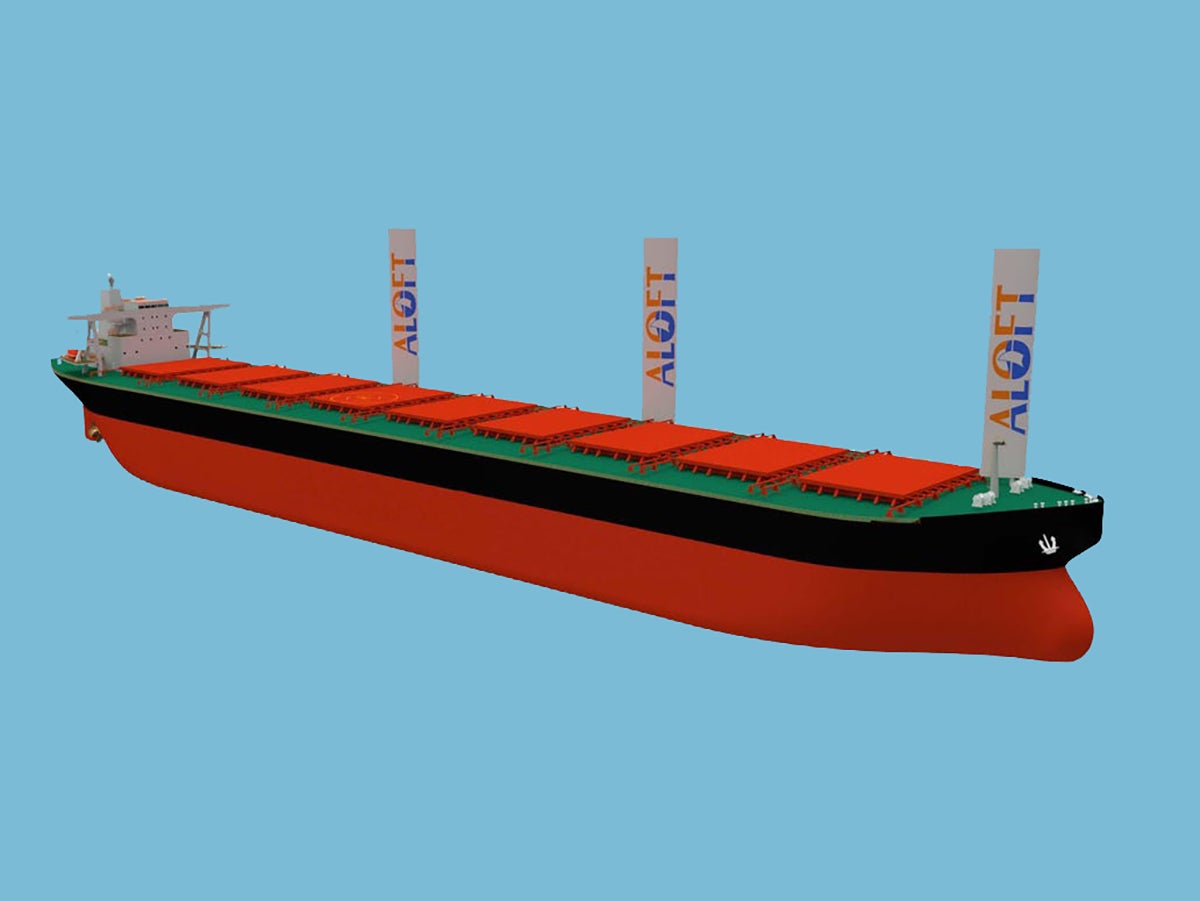
Boston-based Aloft Systems has designed its containerised wind propulsion system to reduce fuel consumption and fossil fuel emissions for shipping, with the system described as ‘wind power-in-a-box’ technology.
The sail system was developed by the company’s co-founders, Miles Keeney-Ritchie and Satchel Douglas. It is an aluminium and composite airfoil within a 16m shipping container and deploys automatically according to sufficient wind, which propels the vessel. When fully extended, the sails tower 18.3m (60ft) above deck.
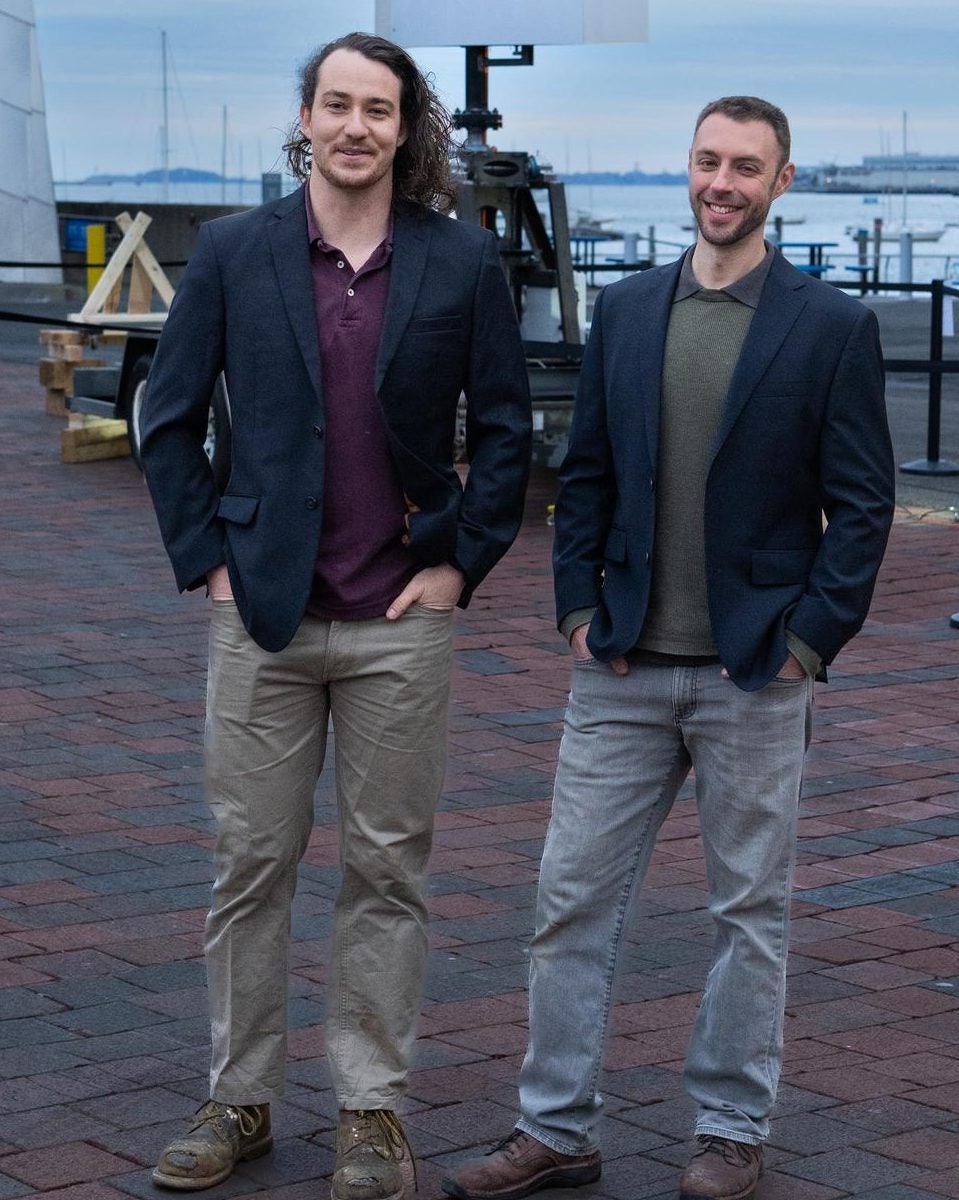
Miles Keeney-Ritchie CEO, Aloft Systems, says: “Operating at sea is an incredibly abusive environment, and our sails are design to be extremely rugged and reliable, yet achieve the same performance as much more complex systems.
“Our camber-morphing technology allows us to deform the wing element creating an asymmetrical airfoil. This significantly increases thrust from the sail and can be adjusted to optimise for a large range of wind conditions.
“Double-batten racing sails create a similar effect but cannot withstand the operating conditions of commercial vessels. We also package the sails in a containerized skid allowing for easy transportation and installation.”
See Also:
The technology is a modular, autonomous high thrust propulsion system which can be lifted on to the deck of any vessel. There is no need for structural modifications, pipework, wiring, or drydocking.
How well do you really know your competitors?
Access the most comprehensive Company Profiles on the market, powered by GlobalData. Save hours of research. Gain competitive edge.

Thank you!
Your download email will arrive shortly
Not ready to buy yet? Download a free sample
We are confident about the unique quality of our Company Profiles. However, we want you to make the most beneficial decision for your business, so we offer a free sample that you can download by submitting the below form
By GlobalDataThe sails will help smaller vessels like PSVs, GCVs, and short-sea barges reduce fuel consumption without needing any intervention from the crew on the ship.
Keeney-Ritchie says: “If conditions deteriorate, the system will automatically stow the sails. While deplyoed, the system automatically adjusts the sails to maximise thrust for the vessel. Our containerised units allow the vessel owner or charterer to optimise wind propulsion across their fleet.
“Since installing our sails simply consists of lifting the containerised unit onto the deck and lashing it down, our customers can vary the number of units on a given voyage allowing them to move the units with seasonal wind patterns or accommodate various cargo configurations.”
Environmental impact
Two sail units, each with a pair of 15m (49.2ft) long, 3m (9.8ft) wide folding sails are expected to reduce fuel consumption and emissions by at least 6%.
Keeney-Ritchie says: “Since our sails are essentially a supplementary engine, the environmental impact is straightforward: when our sails push the vessel forward, the engine burns less fuel.
“Reducing fuel burned means less CO2 and particulate emissions are generated. For every 1 unit of energy we extract from the wind, we avoid burning 1.7 units of energy in fuel.”
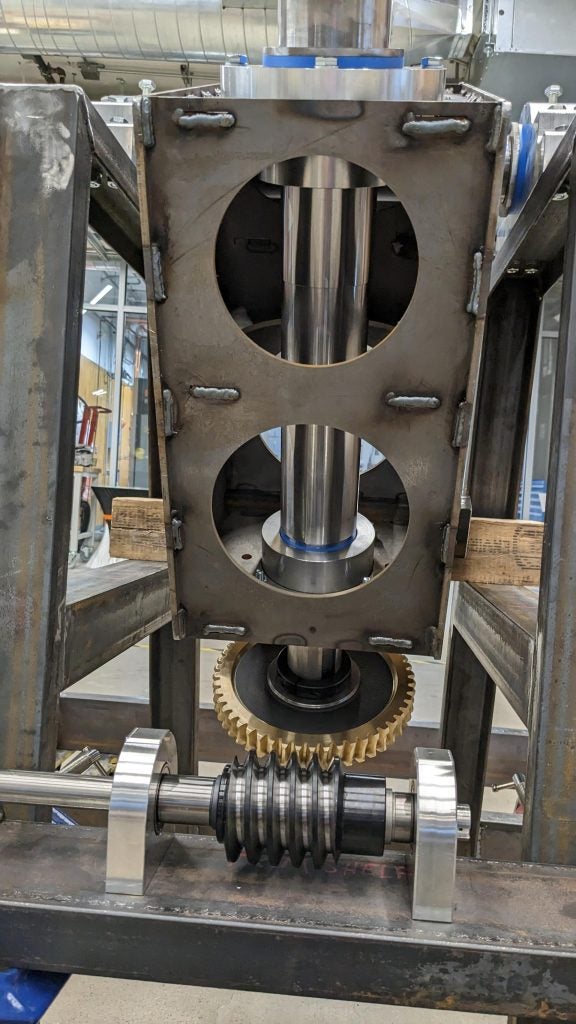
Wind propulsion technology is advancing but it is important that an easily installed system is on the market for existing ships in order to meet emissions legislation.
Keeney-Ritchie notes: “The maritime industry suffers from a tragedy of the commons. Every stakeholder agrees that the industry needs to reduce emissions however fuel costs are often passed along from owner to charterer to shipper in a way that reduces everyone’s incentive to save fuel (and therefore reduce emissions).
“Emissions legislation with significant and enforced consequences would incentivize all parties to reduce emissions and explore technologies like wind propulsion.”
Next steps
Thordon Bearings will supply its grease-free, self-lubricating ThorPlas-Blue bearing material to the system.
Four ThorPlas-Blue bearings were installed on a ¼ scale prototype to allow the sails to fold, rotate 360 degrees and pivot. Thordon will supply the material to full-scale units once a partnership for trials has been established.
Aloft Systems are running tests with the ¼ scale prototype. It is expected that testing will take place this Autumn, followed by a full-size pilot unit trial at the end of 2024.
The company already has partners for technical development of the sails but aims to partner with vessel owners or operators to incorporate operational expertise. This will increase the likelihood of the sails meeting the demands of commercial shipping.



